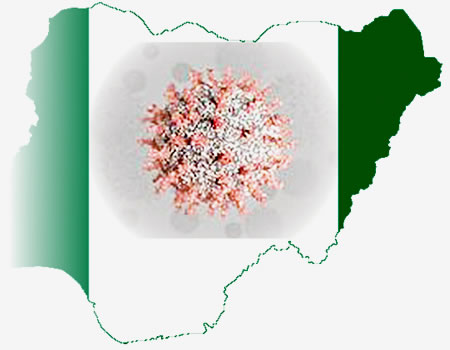THE 1999 Constitution of the Federal Republic of Nigeria (as amended) in Chapter-Two provides Fundamental Objectives and Directive Principles of State Policy which contain litany of socio-economic rights. They include objectives on political, economic, social, educational, foreign policy, environmental, cultural, media, national ethics and duties of citizens.
Section 16(2) CFRN provides “The State shall direct its policy towards ensuring: (a) the promotion of a planned and balanced economic development; (b) that the material resources of the nation are harnessed and distributed as best as possible to serve the common good; (c) that the economic system is not operated in such a manner as to permit the concentration of wealth or the means of production and exchange in the hands of few individuals or of a group; and (d) that suitable and adequate shelter, suitable and adequate food, reasonable national minimum living wage, old age care and pensions, and unemployment, sick benefits and welfare of the disabled are provided for all citizens.”
Chapter One, precisely Section 6 (6) (c) on the other hand, cheapened the Chapter two to be non-justifiable. It means they merely exist as goals and aims to governments for planning purposes and not actually rights that could be challenged in a court of law. Succinctly, they are toothless bulldogs, leaving citizens in uncertainty.
Nonetheless, the Federal Government amidst the disastrous Covid-19 pandemic introduced a stimulus package to citizens towards mitigating the impact of the lockdown it put in place as a protective measure. Inarguably, the lockdown crippled all sectors of the economy particularly the private sector leading to loss of jobs and collapse of small scale businesses. Worst hit are low-scale traders, contract staffs with unsecured jobs and artisans that depend largely on daily struggles for survivals.
Regrettably, these clusters also have families with concomitant responsibilities as those that are less affected. From records, crime rate increased extremely in the polity to an extent many residents had to form vigilante groups to checkmate spike in burglary and armed robbery, particularly at nights. In Lagos, there were various terrorizing groups that issues notices to communities prior to arrival with deadly weapons. The lockdown was indeed a big blow to the vulnerable masses.
The pandemic led to unprecedented disruptions to global supply chains, sharp drop in global crude oil prices, turmoil in global stock and financial markets, banning of social events and restriction of movements of persons. Even schools and religious places of worship were not spared. It was an unprecedented ugly experience in this generation.
As intervention by the government, the Central Bank of Nigeria (CBN) unveiled a N50 billion Targeted Credit Facility (TCF) as a stimulus package to support households and Micro, Small and Medium Enterprises (MSMEs) affected by the Covid-19 pandemic. By the concept, a citizen can access up to N25 million loan refundable in a good timeframe of about three years on terms. Credibly, Vulnerable citizens with robust plans can access up to N500,000 without collateral unlike before, though with equitable annual interest.
This concept is exceptional and a credit to President Muhammadu Buhari’s administration. Prior to Covid-19 pandemic, many ambitious and hardworking citizens had died with their dreams as accessing loans from commercial banks and micro-finance banks were so challenging that the collateral for such loans often ended up killing the dreams. The system could be best described as ‘survival of the fittest’.
Over the years, practically, public officeholders never cared about the welfare of citizens, and even where some incentives existed, they were often hijacked and shared among government officials, politicians and relatives leaving out targeted helpless citizens in dire needs. Meanwhile, Section 14(2)(b) supra provides, “…the Security and welfare of the people shall be the primary purpose of government.”
Now, with the Covid-19 Target Credit Facility, serious-minded citizens can access and get supports from the government without the usual ‘who-you-know’ syndrome. It, therefore, suggests that government is gradually putting the people in its plan. However, the scheme should move beyond an intervention to a template that will outlive the Covid-19 pandemic. It will be sustainable and secure by its structure if government determinedly pays premium attention to it.
It means that many business owners, artisans and underprivileged masses being frustrated due to lack of capital can cheerfully go back to business. It implies that those with vocational skills but encumbered by startup capital have been rescued from the quagmire. Barbers, hairdressers, caterers, technicians and many others can proudly apply for soft loans to start up their businesses.
The crux of the matter is that the CBN/Covid-19 intervention scheme could be advanced to become a permanent template as a proactive social security beyond the pandemic intervention. That will be a judicious means for numerous rights in Chapter Two of the 1999 CFRN to be actualized. With that, citizens with talents and skills may no longer weep over lack of support from the government. Beyond that, crime rate will reduce. The country can start from there until it advances to paying social security to citizens as done in some advanced countries.
Instructively, it must be noted that these credit facility/intervention loans are not meant to be swallowed by snakes as in JAMB office on account of no collateral required. The Bank Verification Number (BVN), a prerequisite for accessing the loans is a robust tool for recovery when due. This is to say that only those actually in dire need should go for it.
For instance, telephone users now borrow airtime and data freely from telecom companies but whenever a recharge is done afterwards, the loan is automatically recouped first. Most likely, that’s how the loan scheme will operate. The moment repayment is due, through BVN device, any deposits into beneficiary’s bank accounts anywhere will automatically service the loan until completely recovered. Thus, if not seriously needed, it is dangerous to go for it. This is a digital age when debtors may not physically be pursued around over debts. Be wise.
Umegboro, a public affairs analyst and Associate, Chartered Institute of Arbitrators, wrote through carl@carlumegboro.com
YOU SHOULD NOT MISS THESE HEADLINES FROM NIGERIAN TRIBUNE
Court Threatens To Revoke Shehu Sani’s Bail
The Federal High Court, Abuja, Monday, said it would revoke the bail granted Senator Shehu Sani if he fails to appear in court on the next adjourned date for the trial of the two-count criminal charges preferred against him by the
Economic and Financial Crimes Commission… Read Full Story
Buhari Appoints New Chief Personal Security Officer
President Muhammadu Buhari has approved the appointment of Deputy Commissioner of Police (DCP), Aliyu Abubakar Musa, as his Chief Personal Security Officer (CPSO). He replaces Commissioner of Police (CP) Abdulkarim Dauda, who was recently redeployed… Read Full Story
APC: Buni-Led Caretaker Committee Promises True Reconciliation
As part of measure to make progress on its mandate in reconciling all factions in the ruling All Progressives Congress, the Governor Mai Mala Buni-led committee has promised to embark on genuine reconciliation of all party leaders and members ahead of the planned convention… Read Full Story
NITDA Can Finance Nigeria’s Annual Budget ―Reps Public Account
The House of Representatives says the National Information Technology Development Agency (NITDA) has the wherewithal to finance the country’s annual budget if given the necessary environment… Read Full Story
No Fee Is Charged For NIS Recruitment ― CG
The Nigeria Immigration Service (NIS) has warned applicants against patronising fake recruitment sites as no fee was charged for NIS recruitment. The Comptroller General, NIS, Mr Muhammad Babandede, gave the warning in a statement by the Service Public Relations Officer (SPEO), Mr Sunday James… Read Full Story
Inside Ibadan Slums Where Water Scarcity, Open Defecation Thwart Efforts At Ending COVID-19 Pandemic
Ibadan, Nigeria’s third most populous city, wears rusted zinc-roof like a royal hat. Weak bricks, cracked and patchy walls are strewn all about the outskirts of the city. The waft of open sewage soaks the air… Read Full Story
Buhari To Perform Virtual Flag-Off Of Ajaokuta-Kaduna-Kano Gas Pipeline Tuesday
President Muhammadu Buhari will on Tuesday, conduct a virtual flag-off of the 614km Ajaokuta-Kaduna-Kano Gas Pipeline construction project, the Nigerian National Petroleum Corporation (NNPC) has said… Read Full Story
Whistleblower Allegation Of $1bn In Unity Bank Account False ― NPA
The Nigerian Ports Authority (NPA) has refuted claims that it has an account containing $1bn in Unity Bank Plc. In a statement signed by the General Manager, Corporate and Strategic Communications of the NPA, Jatto Adams, the agency said that the account number being peddled in public glare by the whistleblower… Read Full Story
COVID-19: Over 2 Million Transport Workers In Critical Condition —Wabba
The President, Nigeria Labour Congress (NLC), Comrade Ayuba Wabba, has cried out that over two million of the congress affiliate members in the road transport sector are worst hit by the effect of the COVID-19 lockdown; and are in critical condition, dying in silence… Read Full Story






